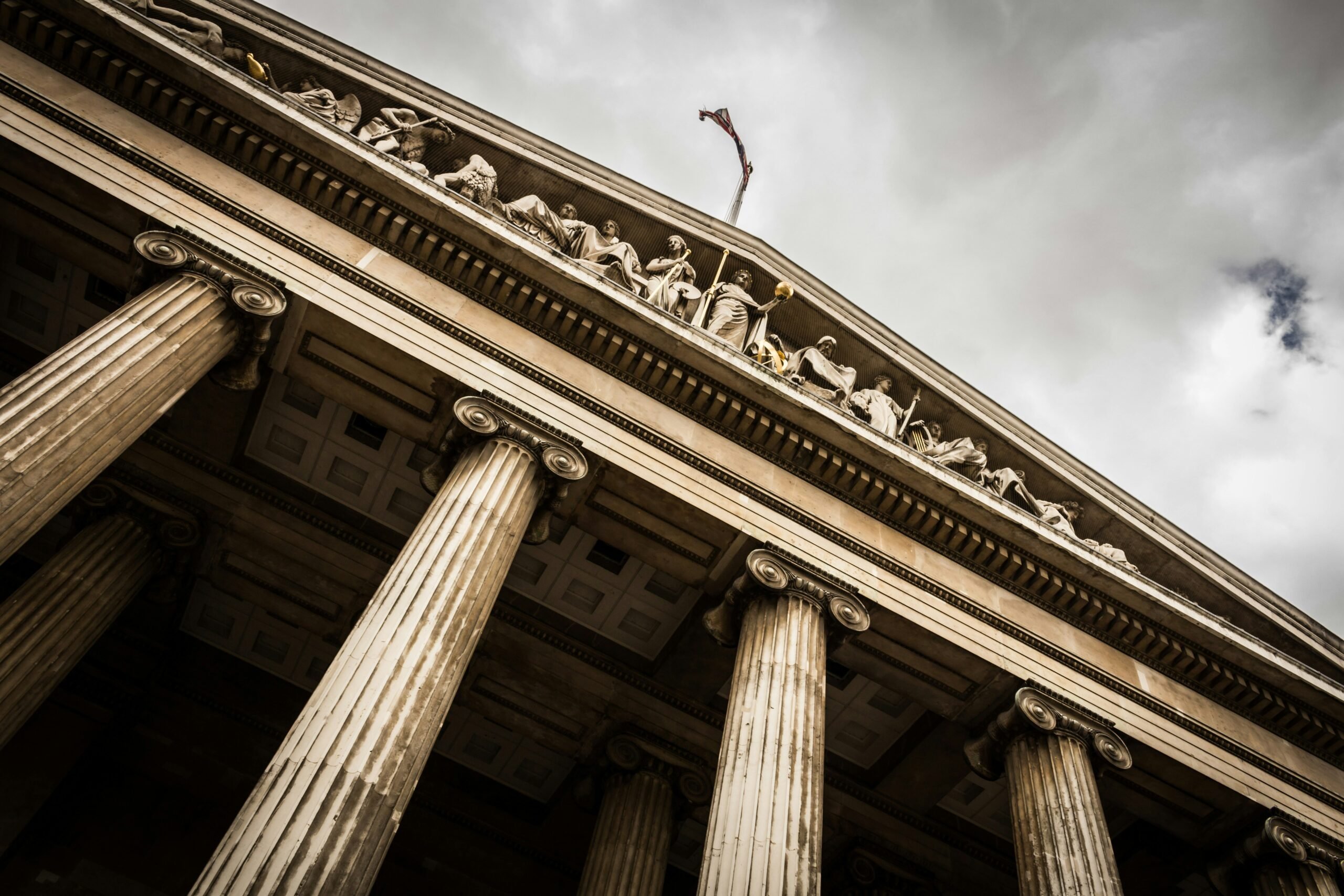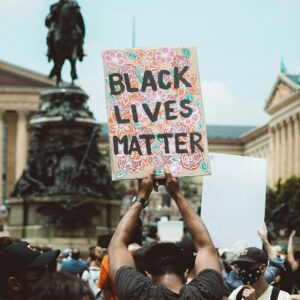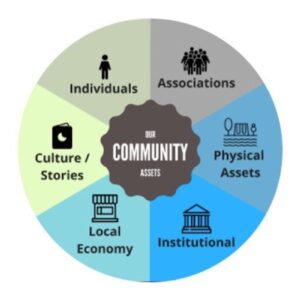
This article was updated on August 13, 2025.
Since President Donald Trump returned to office, nonprofits have faced a barrage of politically motivated attacks—executive orders, funding freezes, and lawsuits, all meant to silence dissent and reshape the civic landscape. With traditional legal support drying up, an ecosystem of legal defense funds and nonprofit law firms is emerging that is set to become a lifeline for nonprofits under fire.
Legal defense funds provide crucial support either by covering costs, offering education and research, or connecting people or organizations with pro bono lawyers—or even operating as full-fledged law firms, with in-house attorneys who defend clients or bring lawsuits. Their foci range from serving vulnerable individuals, such as immigrants or transgender people, to broader issue-based work, like the NAACP Legal Defense and Educational Fund’s racial justice litigation and the Lawyering Project’s efforts to expand access to reproductive healthcare.
While legal defense funds aren’t new, today’s urgency and scale are, as well as a roster of players that is quickly expanding.
Preemptive Defenses
Days after the 2024 presidential election, Democracy Forward launched Democracy 2025, a coalition of more than 550 legal, expert, and advocacy groups, and more than 800 individuals bolstered by a “multimillion-dollar war chest” to take legal action, support pro bono litigation, and equip the pro-democracy community for the battles ahead.
What’s different now is the “sheer pace, scale, and…multi direction that these attacks are coming from.”
In July, Lawyers for Good Government, a legal nonprofit, rolled out the Pro Bono Litigation Corps to give retired, solo, and unaffiliated attorneys the support and infrastructure needed to take on the constitutional litigation that larger firms now avoid. The corps received seed funding from attorney Jay Sadd, former president of the Georgia Trial Lawyers Association, and is fundraising the rest of its program costs.
The nonprofit law firm Washington Litigation Group opened in August to provide pro bono representation to “defend the rule of law” and challenge governmental overreach. Reuters reported that the firm’s funding comes from institutions that “support democracy.”
Some funders are increasing their giving aimed specifically at legal support to meet the moment. More than 700 charitable giving organizations signed on to a joint effort called the Unite in Advance campaign, focused on protecting the right to free speech for philanthropy to choose how it gives.
Three of those signatories announced significant investments in nonprofit legal defense and other strategic support. In January, the Kenneth Rainin Foundation added $4 million to its grantmaking to “mitigate the destructive impact” of Trump’s executive orders, including for grantees to access legal, security, and technical expertise. That support grew in June when the foundation committed $575,000 more for groups “protecting our democracy, the nonprofit sector and civil society” and announced it is “supporting legal action to prevent unlawful and unconstitutional government overreach.”
Similarly, the Meyer Foundation launched a rapid response fund in February for initiatives including lawsuits “challenging laws, policies, or practices that have unjust or discriminatory outcomes.” Though not created explicitly in response to the Trump administration’s actions, the foundation acknowledged that “the political environment…adds urgency.” In July, the foundation doubled the fund to $1 million a year through 2027, acknowledging grantees’ “unexpected strategic and legal costs.”
In August, the MacArthur Foundation boosted its 2025 payout by $60 million for groups “defending democracy or defending their missions in critical areas such as climate action, criminal justice reform, and local journalism.” Among the grants it highlighted $1 million for the Chicago Bar Foundation to establish the Nonprofit Legal Support Project to provide “legal advice, consultation, and representation” to Illinois nonprofits, and another $1 million for the Lawyers’ Committee for Civil Rights Under Law to “to ensure that all Americans have the voice, opportunity, and power to make the promises of our democracy real.”
Unprecedented Attacks
Keith Thirion, vice president of strategy at Alliance for Justice (AFJ), a nonprofit legal advocacy association, told NPQ that what’s different now is the “sheer pace, scale, and…multi direction that these attacks are coming from.” From day one, he explained, the Trump administration has used executive orders and other efforts to target nonprofits, forcing them into unfamiliar legal territory, such as subpoenas, investigations, oversight demands, and suing local governments.
All but six [nonprofits] said they feared Trump’s pressure on law firms could jeopardize future access to legal help.
State-level attacks on nonprofits, Thiron warned, are also “coming even more fast and furious now that there is federal cover.” His colleague Natalie Roetzel Ossenfort, director of AFJ’s Bolder Advocacy program, added that some nonprofits are getting “very detailed requests” from state officials who want to scrutinize their books and activities “to figure out where there might be a violation.” Meanwhile, she said there have been “attempts via state legislatures to criminalize conduct that…wasn’t previously a criminal act,” leaving nonprofits scrambling to keep up and comply with rapidly changing rules.
In response to these federal and state-level threats, nonprofits need a wider range of legal expertise than ever before. But as political attacks against nonprofits escalate, traditional sources of that legal support are retreating. A July Reuters investigation revealed that some of the nation’s largest law firms have abandoned doing pro bono work for nonprofits after Trump issued executive orders targeting the firms. The findings are stark:
Reuters interviewed more than 60 lawyers, reviewed 50 law firm websites, contacted more than 70 nonprofits and analyzed millions of court records…Fourteen civil rights groups said the law firms they count on to pursue legal challenges are hesitating to engage with them, keeping their representation secret or turning them down altogether in the wake of Trump’s pressure…
Of the 33 [nonprofit] groups that responded, all but six said they feared Trump’s pressure on law firms could jeopardize future access to legal help. At least a dozen groups reported that law firms had already backed away from providing legal help, though they all declined to name names, fearing they might alienate lawyers they could need in the future.
Reuters also found that larger firms have “pulled back sharply from litigation against the federal government,” unlike in Trump’s first term, when they frequently challenged his policies. Some have struck deals to give nearly $1 billion of pro bono work to Trump’s priorities:
[The] review found that 46 of the 50 top-grossing US firms have removed or altered website references to diversity, equity and inclusion. Seventeen revised pro bono descriptions to omit contentious areas like immigration and racial justice. At least three added language highlighting work aligned with Trump’s agenda, such as supporting veterans and fighting antisemitism.
This capitulation has left many nonprofits without access to legal talent precisely when they need it most.
Plans for Strengthening Organizations
Amid mounting legal threats, nonprofits aren’t waiting for trouble to find them—they’re making plans. Ossenfort said groups that AFJ has talked to “are taking the time right now to figure out what they need to do, to shore up their defenses, to make sure that if they do find themselves under investigation, that they’re ready to respond.”
“This is the time, more than ever, to take an eye to those vulnerabilities….We can’t start compromising our missions in order to meet a threat that hasn’t come yet.”
These efforts underscore the urgent need for robust legal defense funds and other financial backing for the nonprofits and lawyers joining the fight.
For funders who haven’t yet prioritized legal defense funds, Ossenfort said, “it’s time to pull the pockets inside out and give.” She stressed the importance of “giv[ing] general operating support and let the grantees figure out how they need to spend those funds” when the time comes. To help nonprofits make those plans, AFJ has offered since last year a self-assessment tool called the Advocacy Check-Up, focused on compliance under lobbying and election-related activity by tax-exempt organizations.
“Strengthening your organization is never going to be a bad thing,” Thiron said. “The nonprofit sector should be strong and have the systems in place that it needs to truly thrive. And that was true before Trump, and it’s even more true now.”
But Thiron cautioned against letting fear dictate strategy: “This is the time, more than ever, to take an eye to those vulnerabilities and where you can strengthen without stepping into complying out of fear with laws that don’t even exist…We can’t start compromising our missions in order to meet a threat that hasn’t come yet.”














